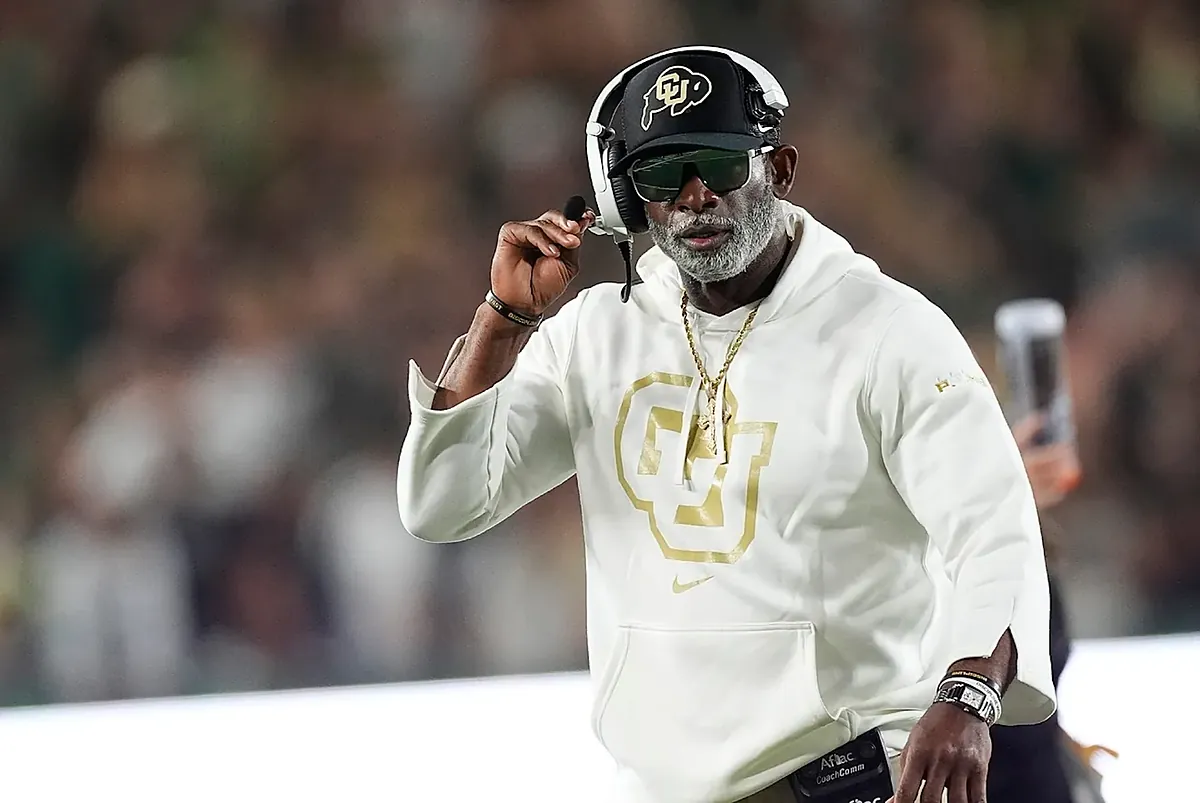

Deion Sanders ignited fierce debate at this week’s Big 12 Media Days by voicing strong support for implementing a salary cap-like structure to regulate the booming NIL (Name, Image, Likeness) landscape in college football.
Speaking passionately to reporters, the Colorado head coach argued that unregulated NIL deals threaten to deepen the existing divide between powerhouse programs and smaller schools, a gap he believes is widening as elite recruits ride giant paychecks toward winning seasons.
“I wish there was a cap,” Sanders stated plainly in his widely shared remarks. “You know, the topoftheline player makes this, and if you’re not that type of guy, you know you’re not going to make that. That’s what the NFL does.”
His comparison to the NFL’s salary structure drew clear attention to the growing chasm he deems dangerous.
Sanders underscored that recent National Championship winners, Georgia, Michigan, and Ohio State, led the pack in NIL spending last year, with Ohio State reportedly dishing out $20.3 million to assemble their titlewinning roster.
“All you have to do is look at the playoffs … and you’ll understand darn well why they’re in the playoffs,” he noted. “It’s kind of hard to compete with somebody who’s giving 2530 million dollars to a darn freshman class.”
Despite his clear concern about financial inequality, many college football fans and analysts were quick to express frustration, or outright ridicule, at the timing of Sanders‘ remarks.
Several questioned whether his call for reform was sparked only after Colorado lost star talents like Heisman winner Travis Hunter and quarterback Shedeur Sanders to the NFL.
Former college football analyst Paul Finebaum criticized Sanders as being “hypocritical” for waiting until after his top players departed before issuing dramatic statements.
Sanders, who flourished over two seasons at Colorado, had not publicly supported NIL limits when Hunter and his son, Shedeur, dominated headlines, according to Finebaum.
Why the NIL cap conversation matters now
Sanders‘ suggestion arrives at a pivotal moment in collegiate athletics. As head coach of Colorado, he has openly dealt with challenges that stem from financial inequalities, such as the Buffaloes‘ inability to match the NIL contracts offered by traditional bluebloods.
Big 12 Commissioner Brett Yormark and other conference officials have acknowledged the issue’s significance, saying it’s “tilting the competitive field” for programs lacking deep-pocketed booster support.
Nevertheless, Sanders emphasized that concerns over NIL spending remain a priority, reinforcing his commitment to fairness in recruiting and program-building.
Meanwhile, Colorado is entering the 2025 season facing fresh challenges: they’ll have to rebuild their team dynamic without Hunter and Shedeur Sanders.
Both left Boulder after a 2024 campaign that ended in a respectable 9-4 record, but fell short of the College Football Playoff.
Sanders‘ proposal to cap NIL earnings may be a wake-up call, but some critics argue that any NIL regulation must be implemented before runaway spending brands certain teams as dominant.
They point out that rolling out reforms after the fact won’t fully mitigate the long-term effects of spending disparities.
This news was originally published on this post .




Be the first to leave a comment